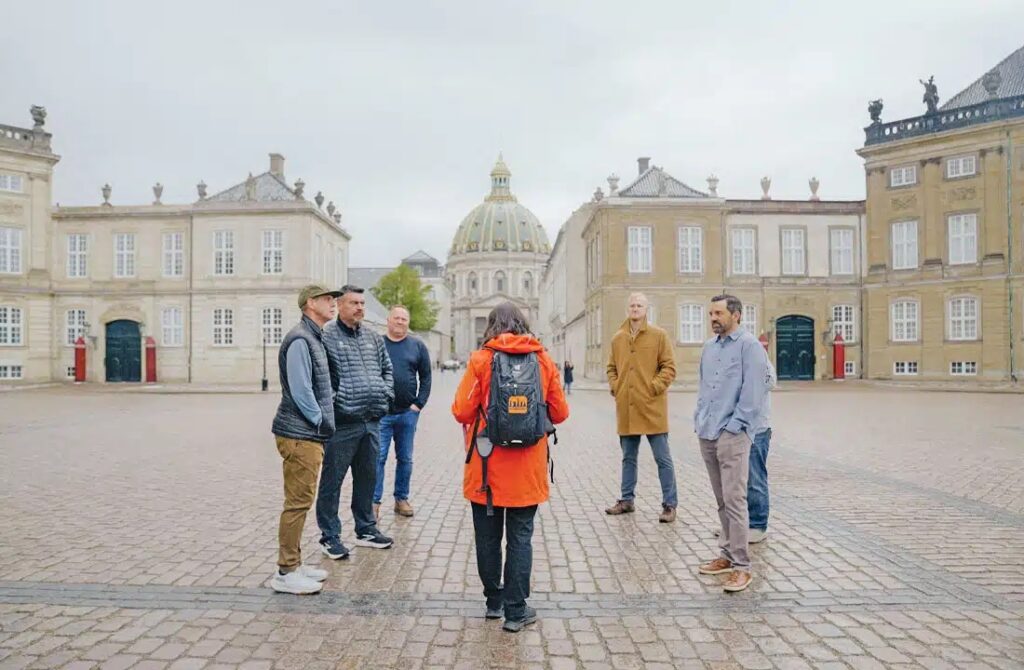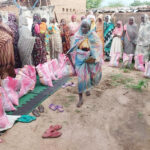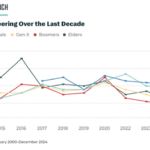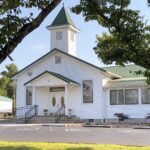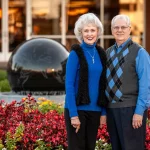
When many Christians imagine unreached people groups, they envision dense jungles and dusty trails. They see villages full of sun-baked huts with thatched roofs housing exotic natives in some of the most remote, difficult-to-reach places on the planet.
In Europe, those unreached people aren’t hidden and they aren’t hard to reach. There are 820 million of them, and almost none of them know Jesus.
Only 1.1 percent of Europe’s residents are evangelical. There is no single population segment that is 2 percent reached with the Gospel. By the International Mission Board’s standards, that makes all of Europe unreached. It’s the most lost continent on the planet.
In early May, the Southern Baptists of Texas Convention led 39 pastors and church leaders on a vision trip as it ramps up its Reach Europe initiative. The effort aims to reverse the trend of staggering lostness by creating opportunities for SBTC churches to develop missional partnerships with European churches and ministries. The vision team was divided into groups that were then dispatched to one of seven cities where the SBTC is considering partnerships: Athens, Greece; Bucharest, Romania; Budapest, Hungary; Copenhagen, Denmark; Leeds, England; Nantes, France; and Ljubljana, Slovenia.
The following chronicles part of what the SBTC teams saw, what they learned, and what’s next.
‘Inoculated to the Gospel’
Copenhagen has a rich Christian heritage. Statues and stone carvings dot the city landscape, depicting notable figures and moments in the country’s faith history. The Marble Church, an iconic landmark with its green-patinaed copper dome, greets visitors and passers-by with a bold proclamation delivered in gold letters across its facade: “The Word of the Lord will be eternal.” Denmark’s flag, the Dannebrog – a red banner adorned with an off-center white cross – is a tribute to three values the country’s founders held dear: bravery, strength and Christianity.
Spiritually speaking, all that pomp is not indicative of the modern circumstance: an estimated 95 percent of Denmark’s 6 million residents – and likely more – do not have a personal relationship with Jesus Christ. Cultural Christianity reigns here, sustained by a society soaked in secularism, relativism and the country’s faith-based history. Because of that history, many Danes conflate their national identity with religion. Put another way, many believe that to be Danish is to be inherently Christian – even without having a personal relationship with Jesus Christ. About 75 percent of Danes belong to the state-affiliated Church of Denmark, which performs infant baptisms. Sixty-eight percent of those people, however, say they are atheists. Fewer than 1 in 40 attend church.
“This is a society that is doing well without God,” said Christian Roth, who, along with his wife Stephanie serves as the IMB’s lone missionary unit not only in Denmark, but also in Sweden, representing a total of about 17 million people.
“This is a very lost place,” said Roth, who pastors New Song Church in Copenhagen. “It’s a part of Europe surrounded by Christianity but inoculated to the Gospel.”
The degree of lostness in Denmark is on display in one of Copenhagen’s busiest centers. As SBTC pastors toured a section of the capital city on a drizzly Saturday, they walked through an area buzzing with locals, tourists and vendors. An already noisy plaza stopped to take notice when a pack of demonstrators began parading down the street, blaring reggae music and holding up placards demanding the government legalize marijuana. Farther down the street, pride flags whipped in the breeze above several local businesses.
Cult activity is openly practiced and promoted. On this day, Scientologists had scattered out from their palatial four-story headquarters – which declares itself a “kirken,” or church – located nearby. Some were offering free literature in front of Copenhagen’s city hall. A few blocks away, a mustard yellow pop-up tent served as a hub where another group of Scientologists were offering to teach people how to manipulate their bodies to manifest positive energy. A banner above the tent offered a self-empowering message: “You CAN do something about it.”
New Song Church is preaching a much different message: Only Jesus can do something about it. The next day during regular Sunday morning services, the SBTC contingent heard Roth – playing guitar – join two other members in leading worship. “You have no rival. You have no equal,” they sang, “now and forever, God, you reign.” Roth later preached from 1 Corinthians 12:12-31 and talked about God’s plan for His church.
“The church is God’s only plan for bringing the world to salvation,” he said. “Jesus came to seek and save individuals who are lost, but the way He did it was by founding the church.”
The harvest in Denmark is indeed plentiful, but the workers are few – very few. Despite straining to plow very hard ground during their seven years in country, the Roths remain hopeful. They are praying for more long-term missionaries to join them on the mission field – a process they know would likely take years even if new trainees join the sending pipeline tomorrow. In the meantime, they’re praying for short-term partners from SBTC churches to catch the vision of what God can do through relational outreaches, marriage conferences and retreats, and evangelistic events such as Vacation Bible School.
Roth noted many in Denmark’s younger generations are starting to question societal norms that have encouraged people to look anywhere but to God for answers to life’s toughest questions. While that’s a promising development, it comes with a sense of urgency in a city where Scientologists, Muslims and Jehovah’s Witnesses are gaining a foothold.
“If it’s not the church and the Gospel answering those questions,” he said, “someone else here will.”
Read the full story, including reports from Budapest and Athens, here.
This article originally appeared in the Southern Baptist TEXAN.
